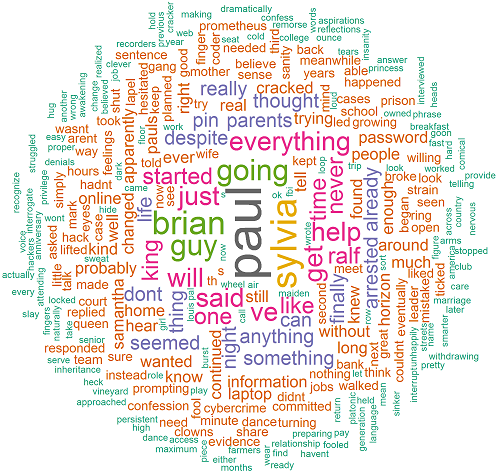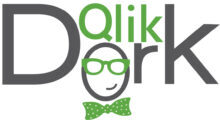
Visualizing Data Governance
Wait a minute. Data Governance is just a theory. A concept. It’s abstract. You can’t visualize it. Stick with me for a few minutes and see if I can’t prove you wrong.
As I travel the country speaking, I put up a simple Power Point slide that has only the word Governance on it. I ask the audience for a show of hands of who thinks the word has a negative connotation. Inevitably, the audience responds that it is negative and their faces look like this player who I was teaching to dive head first into a base.

To many, the word governance implies that IT will keep you from accessing your data. To many it reminds them of the failed multi-year Electronic Data Warehouse projects that they’ve endured that still never allowed business users to access their data.
Self-Service
The history and the fear have cause many to run screaming for Self-Service. “It’s our data and we want access to it now. Free our data! Free our data!”
That’s a great concept. Right? There are plenty of technologies out there that allow users to simply point at the data and start creating pretty pictures. So why am I writing this post? Let me visualize self-service for you and get your thoughts.

That is a word cloud of my latest short story. All the words are there. The larger the word appears the more times it’s used. All I need you to do is recreate the story. You wanted self-service didn’t you?
18 Versions of the Truth
Every organization I’ve ever spoken to has some version of the phrase “18 versions of the truth.” It means that the same data has resulted in 18 different answers.
I’m not trying to be dramatic, I’m being honest. But sometimes the truth stings a little at first. I could give you access to every 0 and 1 your company possesses and petabytes of publicly available data as well. I could give you the prettiest data visualization tool on the market to access it. But that doesn’t mean you will magically get the data modeling or coding skills to make sense of it.
One of the misconceptions in the world is that data is the greatest asset a company has. First the customer and employees are the greatest thing any company has. More importantly 0’s and 1’s by themselves are costly and offer no intrinsic value at all … apart from the business rules that govern them.
Business Rules
Business Rules are those things that for most organizations exist only in the head of a certain few people. You may call them subject matter experts. You may call them data stewards. Or you may just call them Bob and Susie. They are things that drive how the 0’s and 1’s are supposed to fit together.
- We use this category code for testing.
- We use a prefix of zzz_ before last names to indicate that they are only for testing.
- Cost codes that end with _99 imply the sales should be counted.
Business Rules also include the code to calculate values. IF this … then do that … else do this type things. Code that was used to create aggregates in the old days, but needs to be applied on the fly inside of your analytical applications.
You know … the stuff that IT is really really good at but business users have never been trained on.
There is hope
Excuse the sales pitch if you consider it to be one … but Qlik Sense provides organizations the data governance that is required while also providing the “I want it now” access that business users demand and deserve.
How? Great question. Via a role based development environment.
The data gurus get to construct the data models without caring how the data will be consumed.
The coding gurus then get to work with subject matter experts and build out the code. That code is then stored in things called Master Items. Master items include the code, as well as a thorough description. Those master items can be pushed out across all of your applications.
Now you have not only a single source of data, you have a single source of the business rules that provide the form for the data.
Data visualization experts (hooray for y’all) get to do what they love. Build really pretty screens, flip them upside down, turn them inside out all without having to ever lift a finger to code.
What about …
I know the naysayers are already thinking “my company has spent years trying to agree on and create a catalog of business logic and it’s failed every time.” I was in meetings like that so I feel your pain. The problems were always “we have groups that look at things differently and none of the groups was willing to change.”
With Qlik Sense nobody says that they have too. Build master items for all 5 versions. Just include the description along with them. When designers build the screens or end users start doing their own thing they can choose which of the 5 versions is the one that they want to see.
So what happens to all of my IT people if they don’t have to build 1 off reports anymore because we are using Governed Self-Service? Another insightful question. Let me try and suggest … they work on building out the next data source. Then the next data source. Then the next data source. Because unless I miss my guess your organization isn’t going to run out of data sources.
After 30 years doing that kind of work I can share that I hated the phone ringing interrupting me and I hated being asked to adjust the width of a column on a report or change a color in an application to something .003 shades darker. Data geeks love focusing on data. Coders love focusing on code. Designers love focusing on design. So why are you making them do everything.
Eye on the Prize
I traveled the country teaching softball players how to be aggressive on bases by getting over their fears and keeping their eye on the prize. To attack the bases like winning the ball game and becoming a Champion depended on it. You know … because it does.
My friends your businesses depend on the level of governance which you are applying. You can wish for self-service. You can hope for data democratization to just magically occur. But without data governance end users simply can’t get the right story from your data anymore than you could by using the word cloud I provided you of mine.
You can close your eyes, kick and scream and ignore it. Or you can open your eyes, attack data governance and start kicking butt.

PS – If you are attending the Qlik Qonnection’s 2019 event May 13-16 please consider attending my friend Laura Madsen from Route Twenty Five’s breakout session on Radically Democratizing Access to Data where she will take a deep dive into Data Governance.

